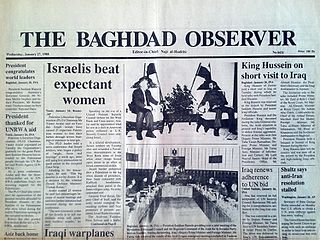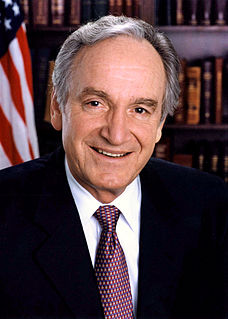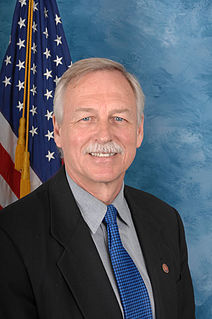A Quote by Scott Ritter
I made a movie to explain to the American public what had been achieved in regards to disarmament of Iraq and why inspectors aren't in Iraq today and detailing the very complex, murky history of interaction between Iraq, the United Nations and the United States. It is most definitely not a pro-Iraq movie. It is a pro-truth movie.
Related Quotes
Well, the United States has said that the disarmament of Iraq is the top priority, but we have also noted that there are many other United Nations Security Council Resolutions which are on the books, including the necessity to respect the human rights of all the citizens of Iraq that we're very interested in.
It was not the United States who invaded Kuwait; it was Iraq. It was not the United States that went to war with Iran; it was Iraq. It was not the United States that fired chemical weapons at Iran; it was Iraq. And it was not the United States that murdered innocent Iraqi citizens with chemical weapons; it was Iraq.
Whereas Iraq has consistently breached its cease-fire agreement between Iraq and the United States, entered into on March 3, 1991, by failing to dismantle its weapons of mass destruction program, and refusing to permit monitoring and verification by United Nations inspections; Whereas Iraq has developed weapons of mass destruction, including chemical and biological capabilities, and has made positive progress toward developing nuclear weapons capabilities
Since United States military operations in Iraq began in 2003, I have visited Iraq at least 15 times. But unlike politicians who visit, the question for me has never been why the U.S. got into Iraq. Instead, as the CEO of Blackwater, the urgent question was how the company I head could perform the duties asked of us by the U.S. State Department.
I think the President's decision to withdraw the United States, to keep a campaign promise in Iraq, without leaving a stay-behind force was a mistake, and I hear that from veterans in Wyoming and from parents who lost children fighting in Iraq. We're seeing it, though, around the world. When we, the United States leads a vacuum anywhere, that emboldens others to go in, when there is no sense of deterrence by the United States that lets bad actors move and fill the void.




































